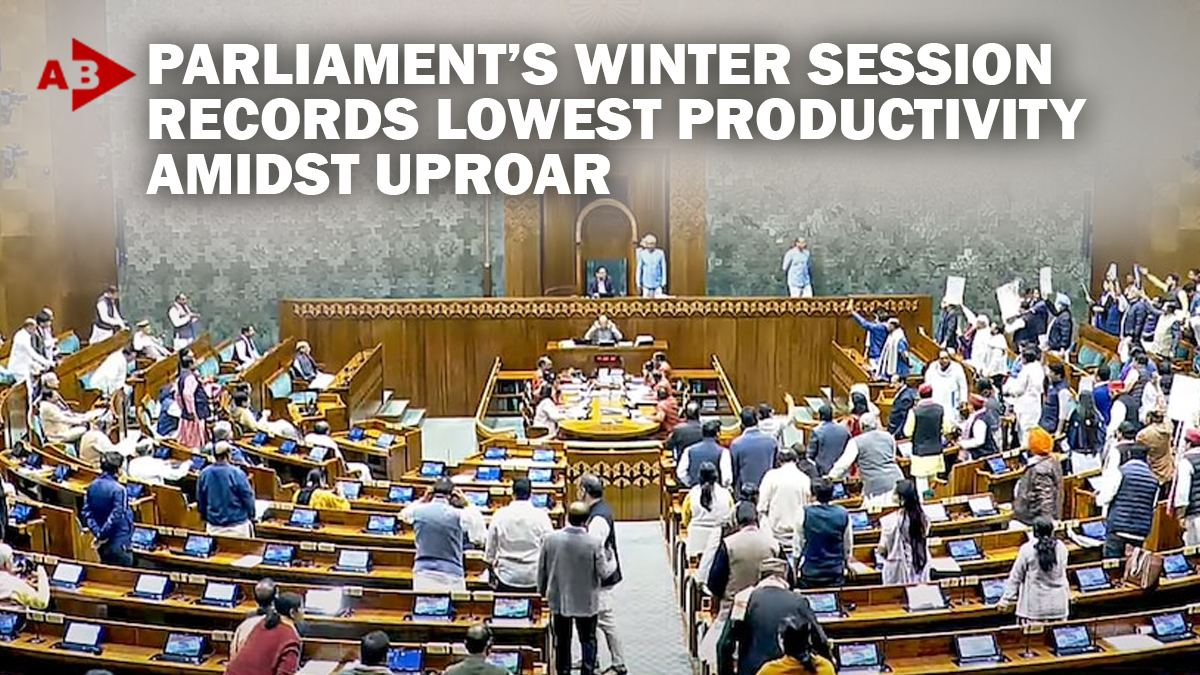
With only four bills passed and significant disruptions, the latest session raises concerns over legislative efficiency and accountability.
The recent winter session of India’s Parliament recorded the lowest productivity in history, with only four bills passed amid chaos and disruptions. Speaker Om Birla calls for accountability as public questions get lost in the uproar. Explore the session’s outcomes and implications for future legislations.
Jotirmoy Roy, AB News, New Delhi: In a winter session marked by chaos, India’s Parliament has set a new low in productivity, raising concerns about the effectiveness of legislative processes. The session, which commenced on November 25 and lasted for 26 days, has been characterized by a significant loss of focus on public issues as lawmakers engaged in relentless uproar.
Over the course of this session, a total of 19 meetings were held in the Lok Sabha, during which five government bills were introduced, with only four successfully passing through. The overall productivity of the Lok Sabha was recorded at 57.87%, while the Rajya Sabha fared worse at 43%. This stark decline in legislative activity stands in stark contrast to the previous budget session, which achieved a productivity rate of 135%.
The session did witness a brief four-day discussion commemorating the 75-year journey of the Indian Constitution from December 13 to December 14. During this time, 61 starred questions received oral responses and 182 matters of urgent public importance were raised. However, outside of these discussions, the atmosphere in Parliament was charged with conflict, as members repeatedly drowned out each other’s voices, leading to the loss of essential public inquiries.
The unrest that characterized this session culminated in numerous disruptions, with little accountability shown for the increasing number of suspensions among MPs. Data reveals an alarming trend, as suspensions have steadily climbed from just one in the First Lok Sabha to 115 in the Seventeenth Lok Sabha, reflecting growing tensions within parliamentary proceedings.
The number of meetings held has also seen a downward trend; where the inaugural Lok Sabha conducted 135 meetings annually, the recent Lok Sabha has dwindled to only 55 meetings per year, indicating a serious decline in legislative engagement.
Amid these challenges, Lok Sabha Speaker Om Birla, on the final day of the session, emphasized the need for all members to uphold the dignity and decorum of Parliament. In his closing speech, he condemned protests at the gates of Parliament, reiterating that maintaining the institution’s sanctity is a collective responsibility.
“If there is a violation of these norms,” he warned, “Parliament reserves the right to take necessary actions to uphold its dignity.” Birla urged members to comply with established rules to prevent further erosion of legislative responsibilities.
As Parliament reconvenes for its next session, the urgency for accountability and increased productivity remains critical for addressing the pressing questions of the Indian populace. The stark reality of the current legislative climate begs the question: Can Parliament rise above the discord and deliver on its promises to the people?


